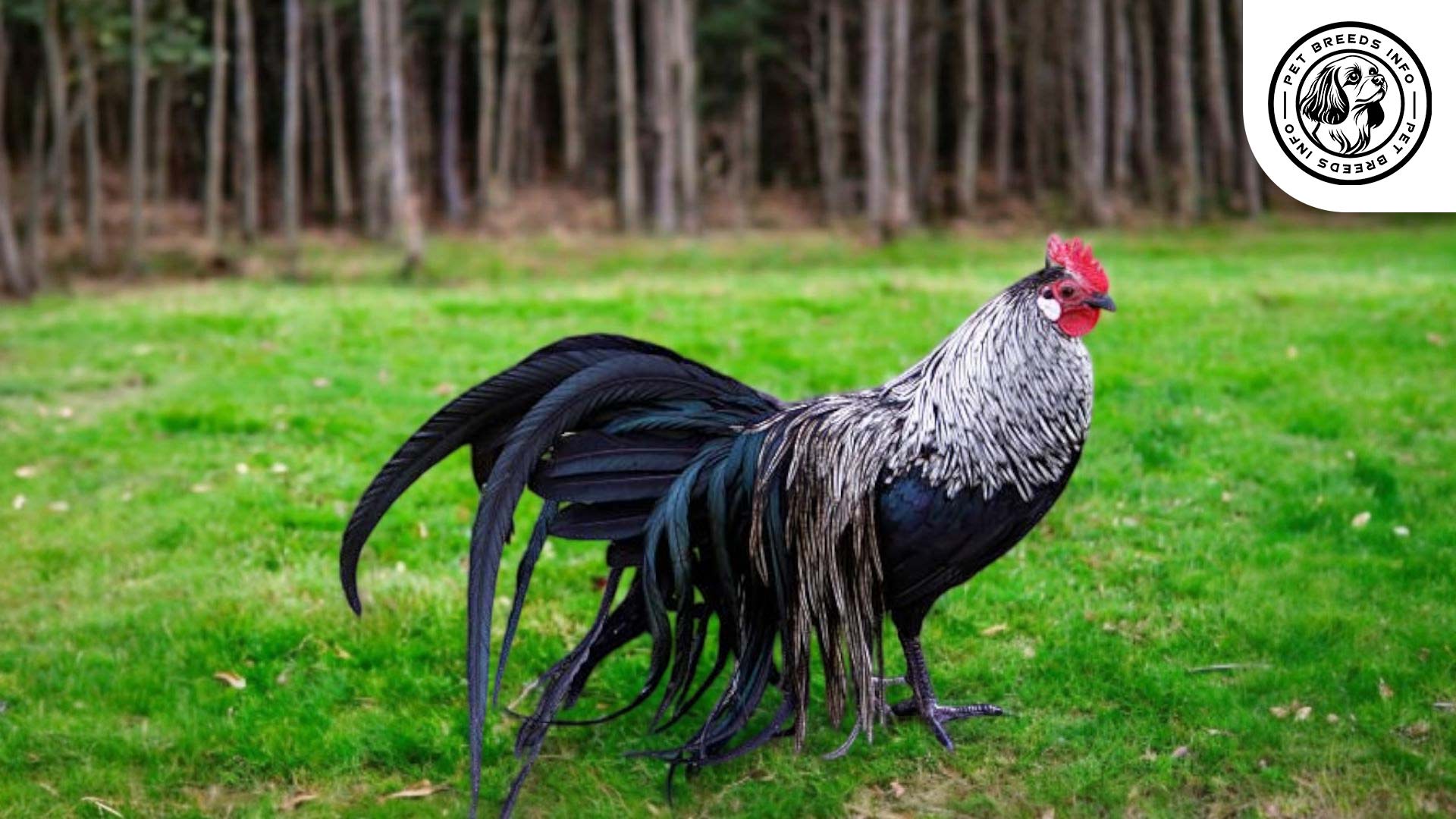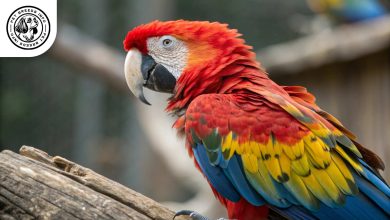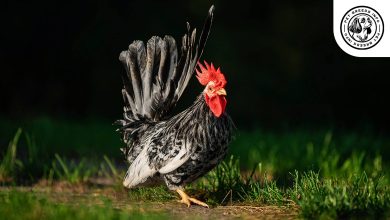Phoenix Chicken Breed: Personality, Lifespan, Food & Care
General Introduction of the Breed
The Phoenix Chicken is a stunning ornamental breed known for its long, flowing tail feathers. Originating from Germany, this breed was developed in the late 19th century by crossing Japanese long-tailed fowls with European breeds. The Phoenix Chicken was created to maintain the long-tailed characteristics while adapting them for Western environments. It is primarily kept for exhibition and ornamental purposes.
Table of Contents
| Common Name | Phoenix Chicken |
| Scientific Name | Gallus gallus domesticus |
| Origin | Germany (descended from Japanese long-tailed chickens) |
| Size | Males: 2–2.5 kg, Females: 1.5–2 kg |
| Lifespan | 5–8 years (can live longer with proper care) |
| Colors | Silver, Golden, Black-Breasted Red, White |
| Talking Ability | None – chickens do not mimic human speech |
| Noise Level | Moderate – roosters crow, hens cluck; not overly noisy |
| Social Behavior | Social, curious, non-aggressive but independent |
Physical Characteristics
The Phoenix Chicken is a medium-sized breed known for its distinctively long tail. Males usually weigh between 4.5 to 5.5 pounds (2 to 2.5 kg), while females weigh around 3.5 to 4.5 pounds (1.5 to 2 kg).
The breed has a sleek and elegant body, with long saddle and hackle feathers. The most striking feature is the tail, which can grow several feet long if properly managed. Phoenix Chickens come in various colors such as Silver, Golden, Black-Breasted Red, and White.
Their eyes are typically reddish bay, giving them a sharp and alert appearance. They have a single comb, red wattles, white ear lobes, and strong yellow or slate-colored legs. The tail is prominently long in males, often surpassing the body length.
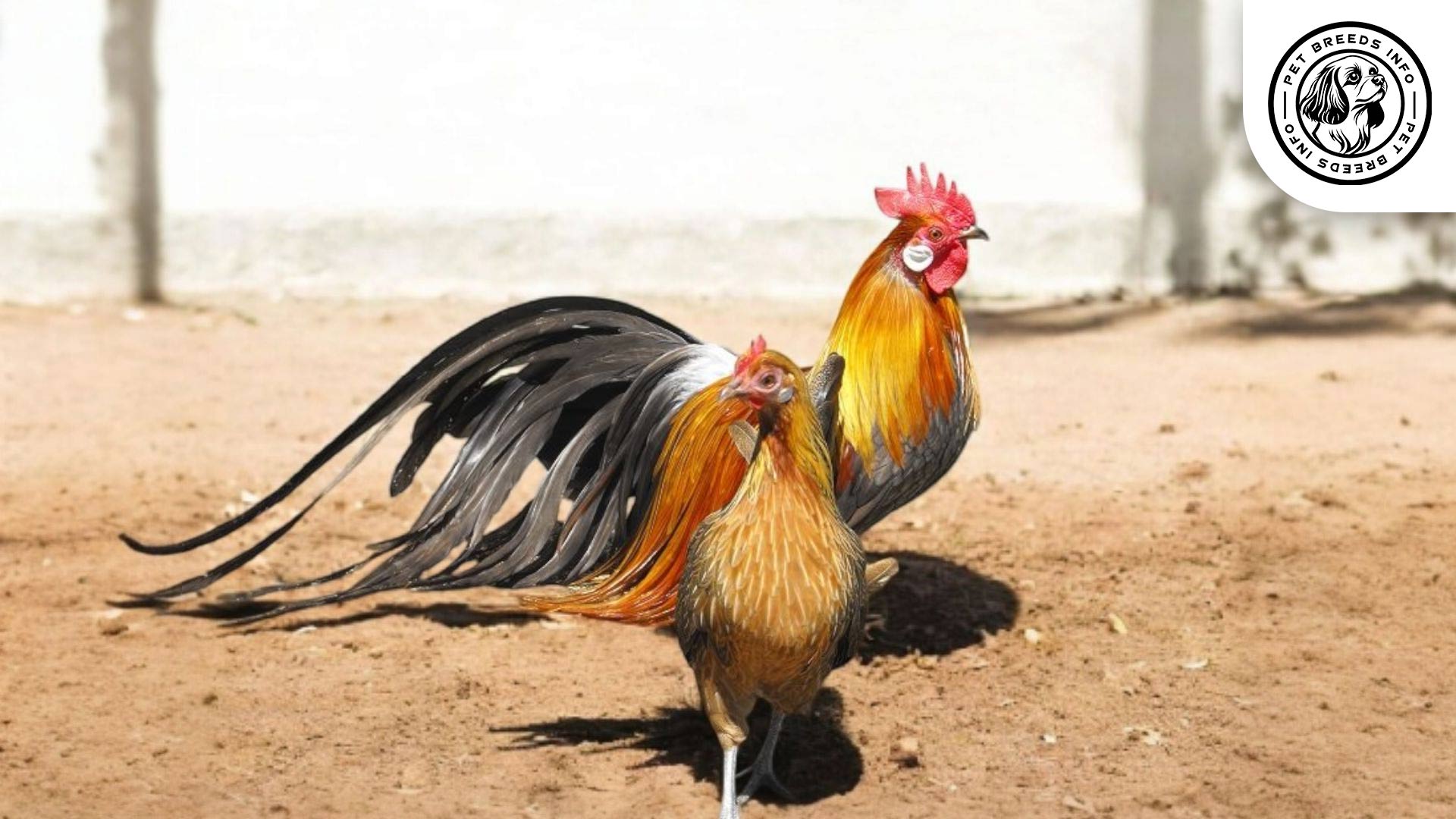
Personality and Temperament
Phoenix Chickens are intelligent, active, and highly curious birds. They enjoy foraging and require space to explore. Although they can be friendly toward their owners, they tend to be more independent compared to other chicken breeds.
They are not overly affectionate but can become tame if handled frequently from a young age. The breed is generally calm but may be skittish around sudden movements or loud noises. Due to their active nature, they may not be the best backyard chickens for families with very young children unless raised in a controlled environment.
Care and Maintenance Requirements
Because of their long tail feathers, Phoenix Chickens require extra care to maintain their plumage. They do best in spacious environments with ample perching areas to prevent tail damage. A secure coop with high roosts is ideal.
They require frequent grooming, including checking for dirt buildup in the tail feathers. Feather maintenance is crucial to prevent tangling and breakage. Daily foraging opportunities or a free-range lifestyle help keep them active and healthy.
Read More: Broad Breasted Bronze Turkey
Phoenix Chickens are relatively cold-hardy but may struggle in extremely cold climates due to their lightweight bodies. They also need protection from excessive humidity, which can cause feather damage and health issues.
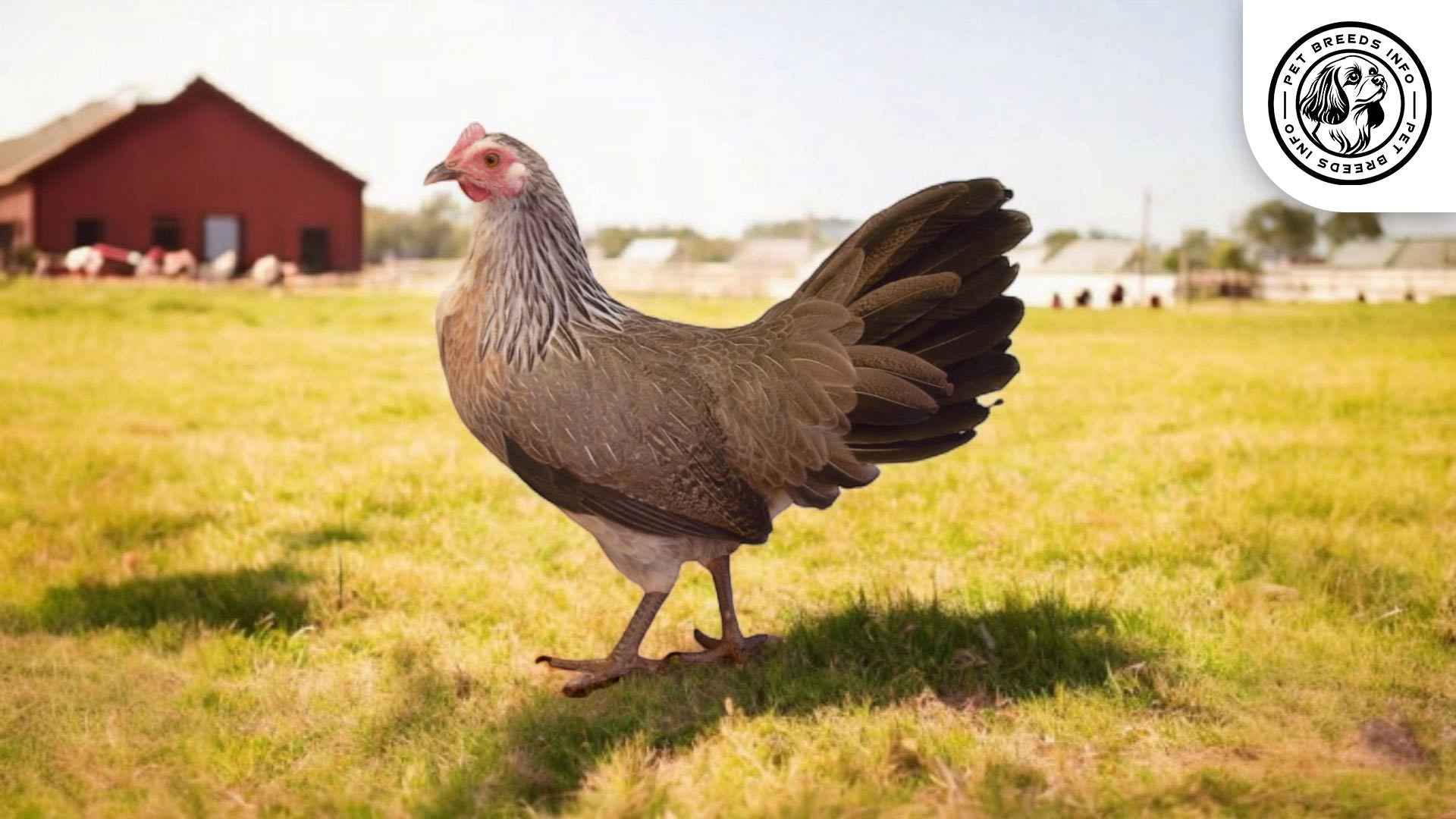
Diet and Nutrition
The Phoenix Chicken thrives on a balanced diet that includes high-quality poultry feed, grains, vegetables, and occasional protein sources like mealworms or insects.
They benefit from additional calcium sources, such as crushed oyster shells, to maintain strong eggshells for laying hens. Foods such as chocolate, avocado, salted foods, and moldy feed should be strictly avoided.
Adult birds should be fed twice daily, with portion sizes varying based on their activity levels and environment. Free-ranging birds may supplement their diet with natural forage.
Health and Common Medical Issues
Phoenix Chickens are generally hardy but are susceptible to external parasites like mites and lice, especially because of their long feathers. Regular cleaning and dust baths can help prevent infestations.
Common health concerns include respiratory infections and frostbite in colder regions. Routine vaccinations, regular health checkups, and proper coop cleanliness are essential for disease prevention.
The average lifespan of a Phoenix Chicken ranges from 5 to 8 years, although well-cared-for birds can live even longer.
Read More: Medium Sulphur-crested Cockatoo Bird
Training and Behavior Management
Training Phoenix Chickens is not as common as in other poultry breeds, but they can be trained to recognize their caretakers and respond to treats. They are independent birds, so patience and consistency are necessary.
Early handling and socialization can help make them more tolerant of human interaction. Positive reinforcement with food rewards is an effective training method.
They should be housed in a safe and secure run, as their curiosity may lead them to wander if given the opportunity.
Interaction with Other Animals and Humans
Phoenix Chickens are social birds that generally do well in flocks, particularly with other non-aggressive breeds. However, due to their active nature, they may not tolerate extensive confinement with aggressive or overly dominant chickens.
They are moderately suitable for families with children but may not enjoy excessive handling. They do best in an environment where they can roam freely and express natural behaviors.
They can sometimes exhibit dominance among other chickens but are not overly aggressive.
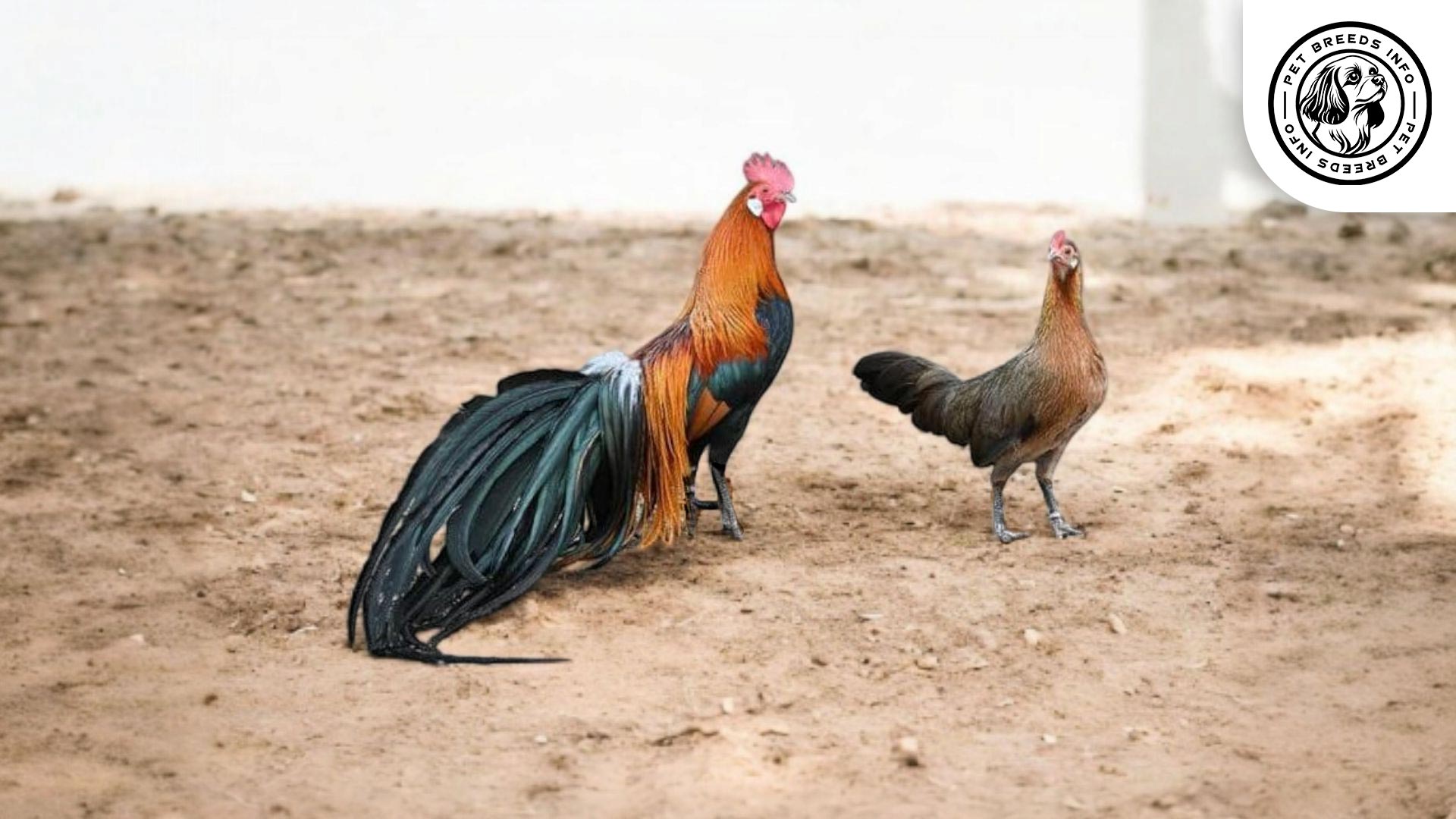
Price and Availability
Phoenix Chickens are considered a rare breed, with prices varying depending on the breeder and bird quality. Chicks typically cost between $5 to $15, while adult breeding pairs can range from $30 to $100 or more.
It is important to source Phoenix Chickens from reputable breeders who maintain proper breeding records to ensure healthy genetics. Some poultry enthusiasts prefer hatching eggs, which can also be purchased from breeders or hatcheries.
Conclusion and Final Thoughts
The Phoenix Chicken is a unique and ornamental breed that requires dedicated care, especially for maintaining its long tail feathers. While they are not ideal for first-time chicken keepers, they can be an excellent choice for those with experience raising poultry.
Read More: Philippine Cockatoo Bird
Due to their active nature, they thrive best in free-range or spacious enclosures. They are eye-catching additions to any flock but require attentive grooming and proper nutrition to stay healthy.
Prospective owners should consider the breed’s specific care requirements before committing. With the right environment and maintenance, the Phoenix Chicken can be a stunning and rewarding bird to raise.
FAQ
What makes the Phoenix Chicken unique?
Its exceptionally long tail feathers and ornamental appearance, especially in roosters, make it stand out among poultry breeds.
Can Phoenix Chickens be kept in cold climates?
They are somewhat cold-hardy but need protection from extreme cold and humidity, which can damage their feathers.
Are Phoenix Chickens good egg layers?
They are not prolific layers; they’re mostly kept for ornamental purposes rather than egg production.
How much space do Phoenix Chickens need?
A large coop with high roosts and access to a secure outdoor run is ideal to protect and maintain their tail feathers.
Do Phoenix Chickens get along with other breeds?
Yes, they are generally social but should be kept with non-aggressive breeds to prevent bullying or feather damage.
